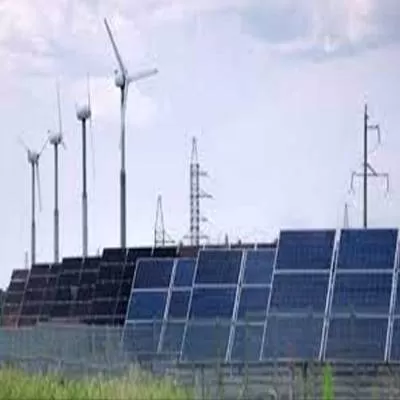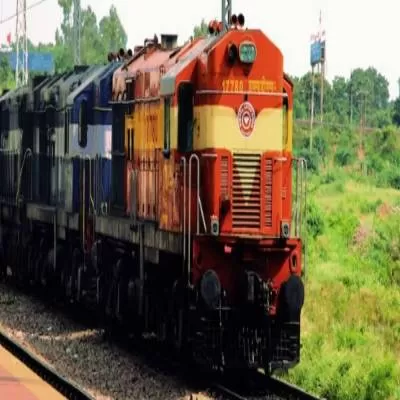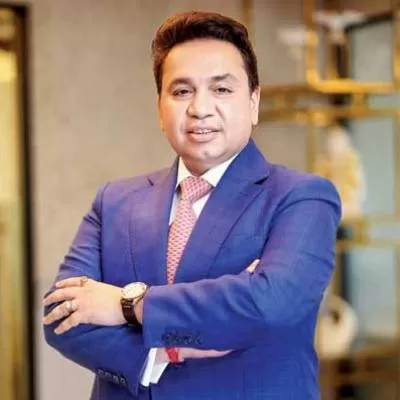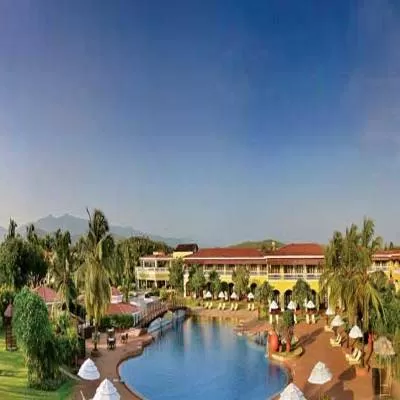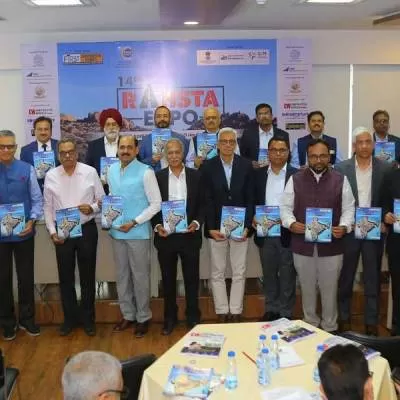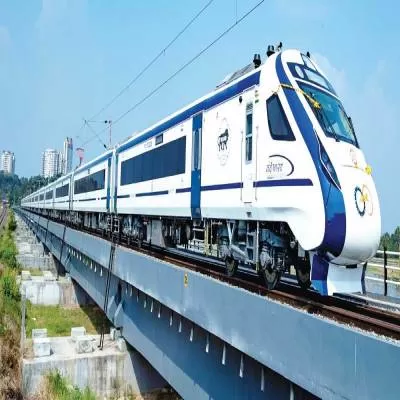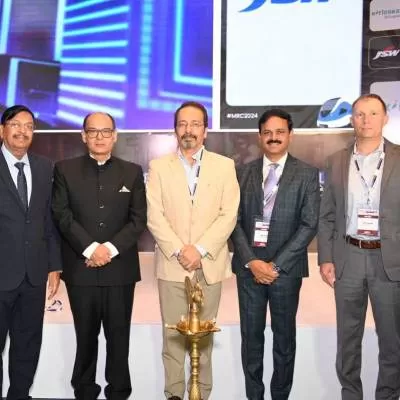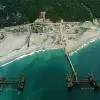- Home
- Infrastructure Transport
- RAILWAYS & METRO RAIL
- Power, housing and railways are among the growing sectors for investments in Turkey
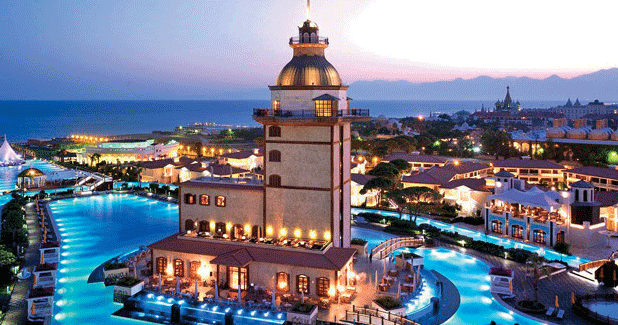
Power, housing and railways are among the growing sectors for investments in Turkey
Diplomatic relations were first established between
India and Turkey in 1948. However, it was only in the 2000s that bilateral relations between both countries deepened. Still, while India became Turkey´s 13th largest trade partner in 2013, Turkey ranked 41 in terms of overall FDI inflows to India. Proof enough of the immense potential for growth of the relationship between both countries! For his part, E Sabri Ergen, Consul General, Turkish Consulate General, Mumbai, has set his priorities: ´Trade, investments and tourism.´ Posted in Mumbai since October 2014, he believes 2015 is the perfect time to draw up a roadmap for both countries.´We look forward to doing business in India contributing to the Government´s ´Make in India´ as well,´ he says, highlighting potential investment and growth areas along with challenges in conversation with Shriyal Sethumadhavan.
What emphasis does Turkey place on India as a trade partner today?
The overall trade between India and Turkey is around $8 billon while in terms of exports, most of it goes from India to Turkey. But trade is not the only economic relationship between both countries. There is direct investment along with the growing tourism industry.
A Free Trade Agreement (FTA) has been long pending between both countries´
We look forward to signing the FTA and believe it will benefit our relationship. We would also like to sign an economic partnership agreement. In January 2014, there was a discussion between the ministries of economy and trade and it was believed to be the right time to get the discussions on track. Firstly, India and Turkey are both in G20; as countries, we are among the 20 biggest economies in the world. We also believe that India´s Prime Minister Narendra Modi will visit Turkey at least once and hopefully the second time for the bilateral relationship. These visits will unlock the potential, especially economic, between both countries. So this year will be an important one for the India-Turkey relationship, setting outlines in clearer tones.
Focusing on the construction and infrastructure sectors, how do you see both countries coming together?
In terms of construction, while there are opportunities, of course, in India, there is another set of opportunities in third countries. Also, Turkish companies have been going international since the 1970s and have been taking up billions of dollars of contracts. So, in terms of geography, we are well established and Indian companies could be partnering with Turkish ones to provide services in these geographies.
Over 150 Indian companies currently operate in Turkey in the form of a JV or registered offices. What type of projects are Indian companies contributing to?
Indian companies have taken up a couple of big projects. A recent one has been the building of big, specialized tanks. Turkey is a hub for various petroleum projects and hence a lot of petroleum comes from outside the country. In view of this, there is more interest in Turkey for specialized construction of pipelines or containers and other related infrastructure projects. Also, several Turkish companies cover a range of infrastructure through housing, and this is what makes the Indian market interesting for them. But in terms of Indian companies investing in Turkey, we would definitely like to see more because Indian companies are global companies and Turkey has been an important country to not just India but North Africa, the Middle East and expatriate markets.
What are the growth sectors in Turkey at present?
Similar to India, Turkey has been growing at a high rate. Power is an important sector, and this is certainly one area for Indian companies to come in. Chemicals would be another sector where Indian companies have specialized knowledge. In terms of infrastructure, the government is looking at improving the railways by introducing bullet trains. Housing is a big market. Just like Mumbai is to India, Turkey´s financial capital Istanbul is a commercial hub with many intelligent compounds coming up.
With infrastructure being an important area of focus for India, how do you view opportunities for Turkish companies here?
I have seen Gujarat and its infrastructure is impressive. Although we have been quite full in our areas of work, India is becoming even more prominent as part of our vision to reach out to Asian subcontinents. In India, the opportunity is in housing, roads and smart cities. Smart cities offer efficiency to countries by providing best opportunities. What is interesting is how one uses nature´s gift intelligently to increase the quality of life of citizens and overall capability of the country. That said, Turkish companies have been growing from mass production to smart production and this fits well with the smart city approach of the Indian Government and the country´s private sector.
Could you name a few Turkish companies in India?
Fernas is one of the Turkish contracting companies operating in India; Celebi is the operator company for land services for Mumbai and Delhi airports; and we have a big group representative for tractor parts in India. Although our presence is not big enough, we are encouraging Turkish companies for greenfield investments and JVs in the Indian market.
The Turkish construction sector is among the largest in terms of the projects undertaken outside the country
According to 2013 statistics, the Turkish overseas contracting services sector has undertaken projects in 102 countries worth over $257 billion since 1972. On that note, in 2013, we were featured as the second country - with 33 companies - after China, for projects undertaken in the previous year at an international level. But of this, our investment in India has been minimal. So, now we are trying to bring bigger Turkish companies here as the smaller companies are having difficulties in getting access to India.
What are the challenges faced, and how can these be overcome?
There are challenges in terms of taxes, and the Indian market is a bit protectionist. Also, different states have different rules, and this is something India is trying to overcome with the new government. Companies are trying to overcome these difficulties themselves. Celebi is one Turkish company established in India. The Turkish airline is doing good business and we believe that wherever the Turkish airlines go, the Turkish businessman also goes. The National Government in New Delhi has some good plans but it needs to put them into practice. Both governments need to talk and encourage companies to invest in both countries. India and Turkey are similar and competitive in many respects. So let´s look at opportunities and create more of them.
E Sabri Ergen, Consul General, Turkish Consulate General, Mumbai Diplomatic relations were first established between India and Turkey in 1948. However, it was only in the 2000s that bilateral relations between both countries deepened. Still, while India became Turkey´s 13th largest trade partner in 2013, Turkey ranked 41 in terms of overall FDI inflows to India. Proof enough of the immense potential for growth of the relationship between both countries! For his part, E Sabri Ergen, Consul General, Turkish Consulate General, Mumbai, has set his priorities: ´Trade, investments and tourism.´ Posted in Mumbai since October 2014, he believes 2015 is the perfect time to draw up a roadmap for both countries.´We look forward to doing business in India contributing to the Government´s ´Make in India´ as well,´ he says, highlighting potential investment and growth areas along with challenges in conversation with Shriyal Sethumadhavan. What emphasis does Turkey place on India as a trade partner today? The overall trade between India and Turkey is around $8 billon while in terms of exports, most of it goes from India to Turkey. But trade is not the only economic relationship between both countries. There is direct investment along with the growing tourism industry. A Free Trade Agreement (FTA) has been long pending between both countries´ We look forward to signing the FTA and believe it will benefit our relationship. We would also like to sign an economic partnership agreement. In January 2014, there was a discussion between the ministries of economy and trade and it was believed to be the right time to get the discussions on track. Firstly, India and Turkey are both in G20; as countries, we are among the 20 biggest economies in the world. We also believe that India´s Prime Minister Narendra Modi will visit Turkey at least once and hopefully the second time for the bilateral relationship. These visits will unlock the potential, especially economic, between both countries. So this year will be an important one for the India-Turkey relationship, setting outlines in clearer tones. Focusing on the construction and infrastructure sectors, how do you see both countries coming together? In terms of construction, while there are opportunities, of course, in India, there is another set of opportunities in third countries. Also, Turkish companies have been going international since the 1970s and have been taking up billions of dollars of contracts. So, in terms of geography, we are well established and Indian companies could be partnering with Turkish ones to provide services in these geographies. Over 150 Indian companies currently operate in Turkey in the form of a JV or registered offices. What type of projects are Indian companies contributing to? Indian companies have taken up a couple of big projects. A recent one has been the building of big, specialized tanks. Turkey is a hub for various petroleum projects and hence a lot of petroleum comes from outside the country. In view of this, there is more interest in Turkey for specialized construction of pipelines or containers and other related infrastructure projects. Also, several Turkish companies cover a range of infrastructure through housing, and this is what makes the Indian market interesting for them. But in terms of Indian companies investing in Turkey, we would definitely like to see more because Indian companies are global companies and Turkey has been an important country to not just India but North Africa, the Middle East and expatriate markets. What are the growth sectors in Turkey at present? Similar to India, Turkey has been growing at a high rate. Power is an important sector, and this is certainly one area for Indian companies to come in. Chemicals would be another sector where Indian companies have specialized knowledge. In terms of infrastructure, the government is looking at improving the railways by introducing bullet trains. Housing is a big market. Just like Mumbai is to India, Turkey´s financial capital Istanbul is a commercial hub with many intelligent compounds coming up. With infrastructure being an important area of focus for India, how do you view opportunities for Turkish companies here? I have seen Gujarat and its infrastructure is impressive. Although we have been quite full in our areas of work, India is becoming even more prominent as part of our vision to reach out to Asian subcontinents. In India, the opportunity is in housing, roads and smart cities. Smart cities offer efficiency to countries by providing best opportunities. What is interesting is how one uses nature´s gift intelligently to increase the quality of life of citizens and overall capability of the country. That said, Turkish companies have been growing from mass production to smart production and this fits well with the smart city approach of the Indian Government and the country´s private sector. Could you name a few Turkish companies in India? Fernas is one of the Turkish contracting companies operating in India; Celebi is the operator company for land services for Mumbai and Delhi airports; and we have a big group representative for tractor parts in India. Although our presence is not big enough, we are encouraging Turkish companies for greenfield investments and JVs in the Indian market. The Turkish construction sector is among the largest in terms of the projects undertaken outside the country According to 2013 statistics, the Turkish overseas contracting services sector has undertaken projects in 102 countries worth over $257 billion since 1972. On that note, in 2013, we were featured as the second country - with 33 companies - after China, for projects undertaken in the previous year at an international level. But of this, our investment in India has been minimal. So, now we are trying to bring bigger Turkish companies here as the smaller companies are having difficulties in getting access to India. What are the challenges faced, and how can these be overcome? There are challenges in terms of taxes, and the Indian market is a bit protectionist. Also, different states have different rules, and this is something India is trying to overcome with the new government. Companies are trying to overcome these difficulties themselves. Celebi is one Turkish company established in India. The Turkish airline is doing good business and we believe that wherever the Turkish airlines go, the Turkish businessman also goes. The National Government in New Delhi has some good plans but it needs to put them into practice. Both governments need to talk and encourage companies to invest in both countries. India and Turkey are similar and competitive in many respects. So let´s look at opportunities and create more of them.




